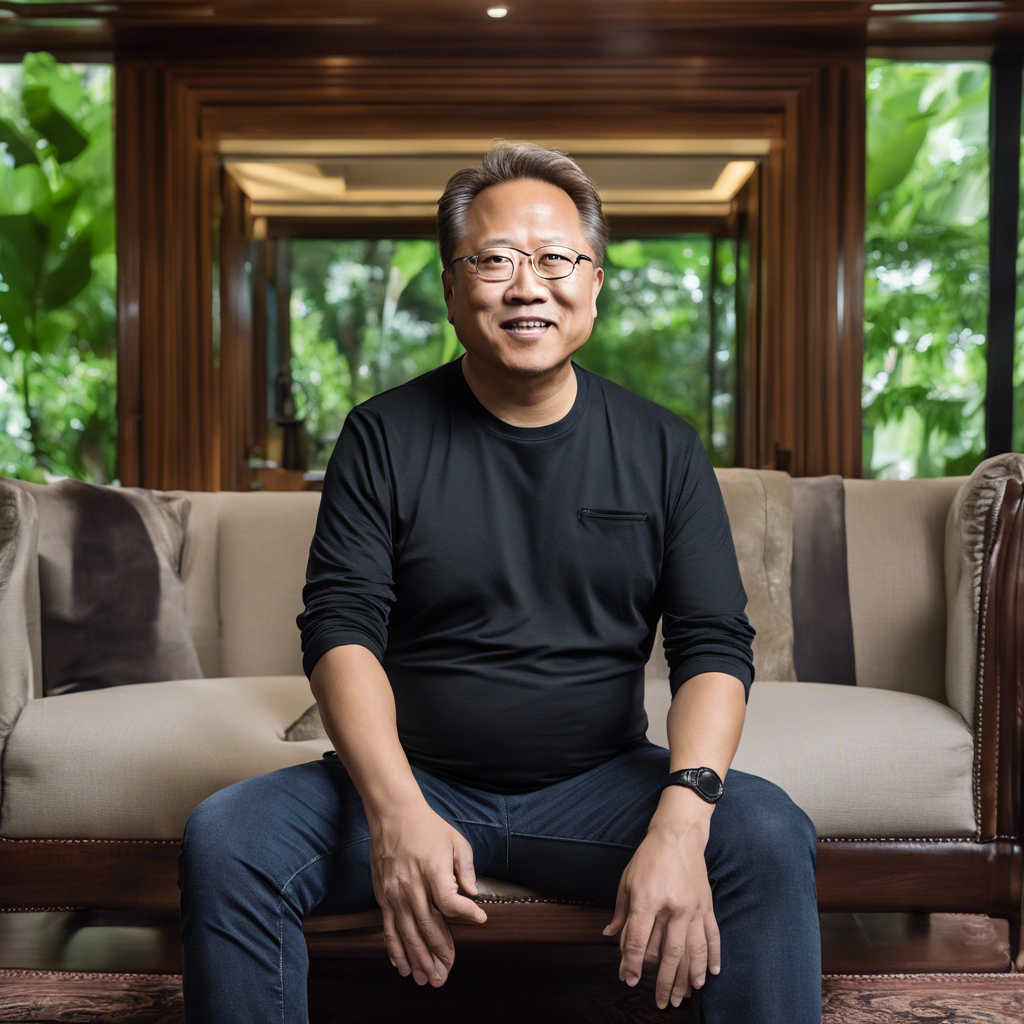Nvidia Co-founder Jensen Huang’s Low-Key Trip to China Raises Questions Amid US Chip Restrictions

Huang’s visit to Nvidia’s offices in China sparks speculation amidst concerns over Beijing’s ability to bypass US chip restrictions.
Nvidia Corp. co-founder Jensen Huang recently made a low-key trip to China, marking his first visit to the country in four years. The visit coincided with growing concerns about Beijing’s ability to navigate around the chip restrictions imposed by the United States. During his trip, Huang visited Nvidia’s offices in Shenzhen, Shanghai, and Beijing, where he engaged with staff and participated in traditional festivities. This visit has raised questions and speculation about the implications for Nvidia’s operations in China and the broader tech industry.
A Closer Look at Huang’s Visit
Huang’s visit to China was characterized by a sense of secrecy and discretion. According to a person familiar with the matter, he toured Nvidia’s offices in Shenzhen, Shanghai, and Beijing earlier this month. Images and videos surfaced online, showcasing Huang wearing colorful traditional attire and enthusiastically dancing with staff. However, it remains unclear whether he held formal meetings with other executives or officials during his visit.
Concerns Over US Chip Restrictions
Huang’s visit comes at a time when concerns are mounting over Beijing’s ability to circumvent US chip restrictions. The United States has imposed various restrictions on Chinese tech companies, including Huawei, due to national security concerns. These restrictions have limited their access to key technologies, including advanced semiconductor chips. As a result, China has been actively seeking alternatives to reduce its reliance on US technology.
Implications for Nvidia and the Tech Industry
Nvidia, a leading global chip manufacturer, has a significant presence in China. The company’s graphics processing units (GPUs) are widely used in various industries, including gaming, artificial intelligence, and data centers. However, with the escalating US-China tensions and the tightening restrictions on chip exports, Nvidia’s operations in China face uncertainties.
Huang’s visit to Nvidia’s Chinese offices raises questions about the company’s strategy in navigating these challenges. It is speculated that Huang’s trip aimed to assess the impact of the US restrictions on Nvidia’s operations and explore potential opportunities for collaboration with Chinese partners. Additionally, the visit may also serve as a gesture of solidarity with Nvidia’s Chinese employees and partners, highlighting the company’s commitment to the Chinese market.
The Future of US-China Tech Relations
The US-China tech rivalry has intensified in recent years, with both countries implementing measures to protect their national interests. The United States has tightened export controls on critical technologies, including semiconductors, while China has accelerated its efforts to develop domestic chip manufacturing capabilities. This ongoing battle for technological supremacy has far-reaching implications for the global tech industry.
Conclusion:
Jensen Huang’s visit to China amidst concerns over US chip restrictions has sparked speculation about the future of Nvidia’s operations in the country. As the US-China tech rivalry continues to unfold, companies like Nvidia face complex challenges in navigating geopolitical tensions while maintaining their global presence. The outcome of this struggle will not only shape the future of individual companies but also have profound implications for the broader tech industry and the global balance of power.

